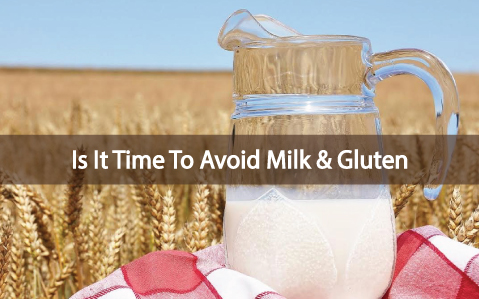Thyroid Nutrition Advice: Exercise, Diet, Gluten, GMO’s, Sugar and Healthy Eating!
Exercise comes in many shapes and sizes! For more information on EXERCISE, click here.
- Skating Burns Calories
- Yoga Flow is Good
- Ice Skating is Tricky
- Zumba Gold Only
- Anna and Danna
- Taking Aqua Zumba is good
- Boardwalk Biking
- Group Yoga Love
- Marry-Go-Round Fun
Diet & Thyroid Nutrition Advice
FOODS TO INCREASE for Hashimoto’s/Hypothyroidism
Proteins
Julia Ross, M.A. advises 20 grams of protein (3–4 oz) at each meal and stresses animal protein foods (Ross, 1999; p. 170). Also, shoot for 1–2 oz at snack time. Cold-water fish is a good choice, as it also contains omega-3 fatty acids. Tempeh is a good source of vegetable protein, and whey protein, though more processed, can be very useful. It contains immunoglobulins and L-glutamine that can help heal a distressed digestive tract.
Antioxidant-Rich Foods
 “Push the antioxidants,” says Richard Shames, M.D. (private conversation, May, 2007). Antioxidant-rich foods are necessary to combat free radical damage caused by the inflammatory process. Emphasis on vitamin-A containing foods is especially helpful, since vitamin A is often deficient in people with any type of autoimmune condition (Plapp, 2002), whose bodies are often inefficient at converting beta-carotene to actual vitamin A. Other nutrients with antioxidant qualities often deficient in Hashimoto’s thyroiditis include vitamins C and E, iodine, zinc, and selenium. (A more complete listing of foods and their nutrient content is available at www.whfoods.org.):
“Push the antioxidants,” says Richard Shames, M.D. (private conversation, May, 2007). Antioxidant-rich foods are necessary to combat free radical damage caused by the inflammatory process. Emphasis on vitamin-A containing foods is especially helpful, since vitamin A is often deficient in people with any type of autoimmune condition (Plapp, 2002), whose bodies are often inefficient at converting beta-carotene to actual vitamin A. Other nutrients with antioxidant qualities often deficient in Hashimoto’s thyroiditis include vitamins C and E, iodine, zinc, and selenium. (A more complete listing of foods and their nutrient content is available at www.whfoods.org.):
- Vitamin A and beta-carotene-rich foods: carrots; cooked calf’s liver; cod liver oil; eggs; pastured dairy; lightly cooked spinach, kale, collard greens and Swiss chard; winter squashes; red bell peppers; apricots; cantaloupe; sweet potato
- Vitamin C-rich foods: red bell peppers, parsley, broccoli, citrus fruits, romaine
- Vitamin E-rich foods: lightly steamed mustard greens and Swiss chard, sunflower seeds, almonds, avocado
- Iodine-rich foods: seaweeds, especially dulse and kelp (be sure it’s very high quality), seafood (free of mercury and wild, not farmed)
- Zinc-rich foods: oysters, crab, beef (organic and/or grass-fed), sesame and pumpkin seeds
- Selenium-rich foods: Brazil nuts, crimini mushrooms, cod, shrimp, halibut, snapper, oats, sunflower seeds, brown rice
Healthful Fats
4–6 tablespoons per day of the good fats found in avocados, nuts, and seeds (especially pumpkin, chia, and flax), organic pastured butter and ghee, olive oil, and coconut and its oil. Coconut is very thyroid-friendly. The lauric acid it contains is soothing to the endocrine system (Bauman, Shomon, n.d.) and its medium-chain fatty acids digest quickly and provide a superior energy source for the body. It can also be helpful for weight loss (Calbom & Shilhavy, 2003). The milk from the coconut can be used in place of other milks.
Vegetables
At least 4 cups per day (Ross, 1999; p. 171). Choose a wide variety of colorful veggies and eat them lightly cooked or raw. NOTE: Avoid eating the brassica family raw, as these inhibit thyroid function. Brassicas include broccoli, cauliflower, turnips, etc. Don’t overdo these, in general, though they should be fine in moderation (Shames, private conversation, May, 2007).
Carbohydrates
Go easy on the fruit, grains, and starchy vegetables. Two 1/2 cup servings of fruit per day, plus 1/2 to 1 cup, one or two times per day, of whole grains or starchy vegetables (Ross, 1999; p. 171).
NOTE: Soaking or sprouting grains prior to cooking will make them more digestible — an important consideration for those with impaired digestion, which is common with hypothyroid. However, unsoaked is fine occasionally; just be sure to chew well.
Water
At least 8 cups pure, filtered water daily. Avoid water with chlorine and fluoride, as these are halogens andcompete with iodine, the halogen the body uses. This can disrupt thyroid function. And remember: it is not wise to purchase water in plastic bottles.
Functional Foods
To support people with a wide variety of health issues, a dietary food supplement powder is a great ally. A therapeutic combination can include undenatured whey protein concentrate (or other protein powder for those intolerant of dairy), a blend of algae, cereal grasses, and sea vegetables; a blend of fibers, including flax meal and apple pectin; extracts of highly anti-inflammatory organic fruits and vegetables; and other therapeutic elements such as aloe vera, detoxifying herbs, ionic minerals, probiotic bacteria, and digestive enzymes.
This combination provides easily digestible protein and, with whey, is rich in sulfur amino acids that support detoxification, healing chlorophyll, and anti-inflammatory nutrients to cool an overheated immune system and cleanse impurities from the blood, thyroid and its hormones, and to improve thyroid hormone sensitivity. It can be used as a meal replacement in a shake or just added to warm or cool liquids. Making it with coconut water is a very healthful and refreshing application.
Dietary “tricks” can help hypothyroidism, too. The first is to reduce caloric intake by about 30 percent.Essentially, stop eating before getting full, while still taking in adequate nutrients. Calorie restriction, as it is called, has been shown to improve both immune and thyroid function (Moore, 2006). The second technique, from Dr. Ken Blanchard, is to “eat breakfast like a king, lunch like a prince and dinner like a pauper” (Blanchard, 2004; p. 200). This prevents the body from being overloaded with food at night, when it is converting fat to muscle with growth hormone, and to fuel it well during the day to accommodate energy needs.
Things to AVOID
Gluten: Hashimoto’s, as mentioned above, occurs at a greater rate in those with celiac disease than in the general population. The gluten molecule is very similar to thyroid tissue, and it is thought that the immune system identifies the thyroid gland as gluten and attacks it.
Aspartame: Aside from its other known toxic effects, Aspartame appears to be particularly problematic for the thyroid gland (Bauman, in Shomon, n.d.).
Iodized Salt: Even though the thyroid gland depends on iodine to produce hormones, this is not the way to get it. It is not possible to eat enough salt, in the first place, to get the daily recommended dosage of iodine (150 mcg). Nor is it advisable to consume such a highly processed product, the grocery store versions of which often contain aluminum and dextrose (Bauman, Shomon, n.d.). Sea salt, unprocessed and containing trace minerals, is a far better choice.
Unsaturated Oils: (including canola oil): There is speculation that these contribute to hypothyroidism. Whether it is because they contain so much inflammation-promoting omega-6 fatty acid, or because they are generally rancid even before they are bottled (or go rancid in their clear bottles) is not known. Use Coconut oil.
Soy: Also disruptive to the endocrine system, and considered a toxin by some, though it is the isolated and concentrated isoflavones that pose the greatest risk, according to Ken Blanchard, M.D. (2004; p. 190). He points out that infants fed soy formulas are more likely to develop autoimmune conditions later in life than those who are not. Depending on soy as a primary source of protein is not recommended. Even small amounts have been shown to have powerful hormone disrupting powers and can lower concentrations of T3 (Ross, 1999; pp. 204–205). The exception to this is fermented soy foods, such as tempeh, natto, and miso.
GLUTEN: (from Latin gluten, “glue”) is a protein composite found in wheat and related grains, including barley and rye. Gluten gives elasticity to dough, helping it rise and keep its shape and often gives the final product a chewy texture. If you’ve noticed that you react badly to gluten — with symptoms like diarrhea, stomach upset, abdominal pain, and bloating — see a doctor to get tested for celiac disease. Do that before you start any gluten-free diet.If you’re suffering from an undiagnosed health problem – or even an “incurable” autoimmune disease – you should consider getting tested for gluten sensitivity. Believe it or not, this “hidden” sensitivity can be at the root of many illnesses – many of them “incurable” autoimmune diseases.
Ultimately, that means that treating these diseases could be a simple as adjusting your diet.
Thyroid Nutrition advice, what to eat, what to avoid, exercise tips, ideas and suggestions for living a thyroid-healthy life.
Source
http://www.baumancollege.org/Articl…/hashimotos-article.html













